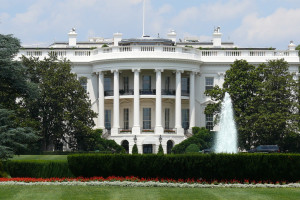Press Gaggle by Press Secretary Karine Jean-Pierre and National Security Advisor Jake Sullivan En Route Phnom Penh, Cambodia [Excerpt Re: Ukraine]

(The White House – Nov. 11, 2022)
Q One last one. We’ve seen some more — the Russian pull-out in the Kherson region sort of play out on the ground over the last 24, 48 hours. Has there been any U.S.-Ukrainian contact, discussion, now after that pull-out — engagement regarding negotiations and, you know, sort of — everyone sort of taking their time over the winter to assess their situation for negotiation?
MR. SULLIVAN: So, I’ve obviously seen a number of press stories on this topic, and I thank you for the opportunity to lay down what I think are the four core elements of consensus in the U.S. government and, fundamentally, what President Biden believes about this question.
The first is: He said in the press conference it’s up to Ukraine to decide when and how they want to negotiate. Nothing about Ukraine without Ukraine. We’re not going to pressure them; we’re not going to dictate to them.
The second is that we believe in a just peace based on the principles of sovereignty and territorial integrity that are not things we made up but that are embedded in the U.N. Charter. The G7 leaders spoke to these principles of a just peace, including territorial integrity. President Zelenskyy has spoken to these.
The third point is that Russia is doubling down on its “annexation,” quote, unquote — annexation of Ukrainian territory. That’s not exactly a sign of seriousness about negotiating. As long as Russia holds the position that it simply gets to grab as much territory as it wants by force, it’s hard to see them as a good-faith counterparty in a negotiation.
And the fourth and final point is that the U.S. approach remains the same today as it was six months ago, which is we’re going to do everything we can, including our announcement, our military announcement — our military security assistance announcement yesterday — to put Ukraine in the best possible position on the battlefield so that when they make their determination to proceed, they’re in the best possible position at the negotiating table.
And one more big-ticket item. So there’s kind of this sense of when is Ukraine going to negotiate. Okay, ultimately, at a 30,000-foot level, Ukraine is the party of peace in this conflict, and Russia is the party of war. Russia invaded Ukraine. If Russia chose to stop fighting in Ukraine and left, it would be the end of the war. If Ukraine chose to stop fighting and give up, it would be the end of Ukraine.
So this whole notion, I think, in the Western press of “When is Ukraine going to negotiate?” misses the underlying fundamentals, which is that Russia continues, even as recently as the last 24 hours, to make these outlandish claims about annexed Russian territory — quote, unquote, “Russian territory” — including territory they just left.
So in that context, our position remains the same as it has been, and fundamentally is in close consultation and support of President Zelenskyy and Ukraine. And that is shared across the U.S. government.
Q Can I follow up on that, on Ukraine? Regarding Kherson city, at the briefing you gave, you expressed reservations — “Let’s wait and see what actually happens,” the evidence.
MR. SULLIVAN: Yeah.
Q Is that still your position now, or do you feel like this is real? And if so, can you talk about the significance of that?
MR. SULLIVAN: I think you’ve heard enough from me to know that — over the last months — to know that I express permanent reservations about everything. So I, personally, will not be fully confident that there’s been a complete pull-out of Kherson on the right bank of the Dnieper River until we land and I can call back secure and hear for certain.
But it does look as though the Russians have executed this withdrawal. And it does look as though the Ukrainians have just won an extraordinary victory where the one regional capital that Russia had seized in this war is now back under a Ukrainian flag. And that is quite a remarkable thing.
And it has broader strategic implications as well, because being able to push the Russians across the river means that the longer-term threat to places like Odessa and the Black Sea coastline are reduced from where they were before.
And so this is a big moment. And it’s certainly not the end of the line, but it’s a big moment. And it’s due to the incredible tenacity and skill of the Ukrainians, backed by the relentless and united support of the United States and our allies.
Cool. Thank you, guys.
Q Thank you, Jake.
[post also appeared at whitehouse.gov/briefing-room/press-briefings/2022/11/11/press-gaggle-by-press-secretary-karine-jean-pierre-and-national-security-advisor-jake-sullivan-en-route-phnom-penh-cambodia/]
